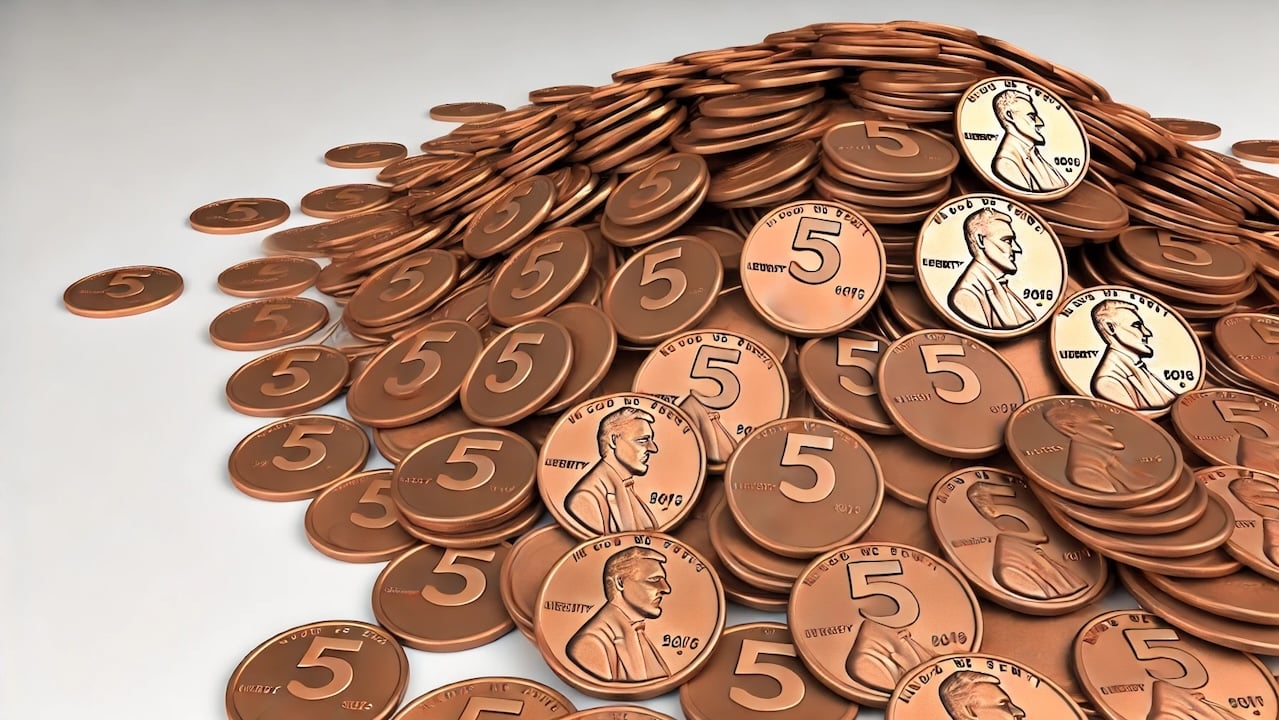from The Rubin Report
The Greed Theory of Inflation and the Cowardice of Economists
by David C. Rose
The American Institute for Economic Research
 The inflation outlook has improved, but it is still very much in the news. Although the rate of increase has slowed, prices remain more than 20 percent above what they were four years ago. At the same time, most analysts understand that the slow and at times negative growth of the money supply, which has tamed inflation somewhat for now, cannot be sustained.
The inflation outlook has improved, but it is still very much in the news. Although the rate of increase has slowed, prices remain more than 20 percent above what they were four years ago. At the same time, most analysts understand that the slow and at times negative growth of the money supply, which has tamed inflation somewhat for now, cannot be sustained.
Now that the Fed has announced its 50-basis-point cut in the federal funds rate, it will be opening the money spigot again. To be fair, the increase in the rate of growth of the money supply needed to achieve this reduction in the federal funds rate is modest. But as the Fed continues to reduce rates, the rate of money growth will increase, and so the likelihood of future inflation will rise. Since the Fed has given every indication that many more rate cuts are coming, what either presidential candidate has to say about inflation has never been more important.
Corporate Pricing Power and Therefore Inflation Not Vanquished, Says Renewed Spike in Corporate Profits in Most Industries
by Wolf Richter
Wolf Street
 More evidence that underlying inflation dynamics are thriving.
More evidence that underlying inflation dynamics are thriving.
How corporate profits spiked during the inflation-shock of 2021 and 2022 was amazing to watch: The pricing power companies suddenly had to hike prices and pump up profits because their customers were suddenly paying whatever, thereby propagating inflation across the economy. Then pricing power started fading, a mini lull ensued, and inflation backed off a lot. But now corporate profits have taken off again, and this renewed pricing power could be more bad news on the inflation front.
Harris and the Greed Theory of Inflation
by George Leef
National Review
 One of the very few pronouncements about policy by Kamala Harris was that she thinks the way to stop the inflation of prices for food (and presumably, other necessities) is federal price controls — empowering officials to go after companies that they deem guilty of price-gouging. The anti-market Left loved it.
One of the very few pronouncements about policy by Kamala Harris was that she thinks the way to stop the inflation of prices for food (and presumably, other necessities) is federal price controls — empowering officials to go after companies that they deem guilty of price-gouging. The anti-market Left loved it.
Top Stories
Catholic Schools Should Practice What They Are Supposed to Preach?
Eric Adams Accepted Bribes, Illegal Campaign Contributions, Newly Unsealed Indictment Says
Walz Education Appointee Calls for the Overthrow of the U.S.
Economists, however, understand that inflation is not caused by greed. In this AIER article, David Rose explains the truth to anyone willing to listen. Greed — the desire to maximize gains in business — is a constant. It cannot explain why prices sometimes surge and at other times remain level or even fall. Economists of all persuasions understand that. And Kamala Harris has some economics background. Does she believe the “greed” theory?
A Looming Port Strike Could Fuel Inflation and Cause Layoffs, Experts Say
Tens of thousands of dockworkers are set to strike as soon as Oct. 1.
by Max Zahn
ABC News
 Tens of thousands of dockworkers are set to strike as soon as Oct. 1, potentially snarling dozens of ports along the East and Gulf coasts with major implications for the U.S. economy.
Tens of thousands of dockworkers are set to strike as soon as Oct. 1, potentially snarling dozens of ports along the East and Gulf coasts with major implications for the U.S. economy.
A shutdown of the ports would cost the economy up to $4.5 billion each day, according to a report from JPMorgan senior equity analyst Brian Ossenbeck.
The East and Gulf Coast ports account for more than half of U.S. container imports, facilitating the transport of everything from toys to fresh fruit to nuclear reactors, Ossenbeck found.
A strike lasting only a handful of days would wreak little damage, but a prolonged work stoppage of several weeks or months could drive up prices for some goods and cause layoffs at manufacturers as raw materials dry up, experts said.
Chicago Fed President Goolsbee Wants to Declare Pennies Are Nickels
[Ed. Note: He also mentioned calling horses unicorns and embraced the concept of putting TBD on all new born birth certificates in the space for gender. How detached from reality is this idiot?]
by Mike Maharrey
Headline USA
 A recent comment by Chicago Federal Reserve President Austan Goolsbee gives you a glimpse into how Fed people think and helps to explain exactly why you’re paying more for everything.
A recent comment by Chicago Federal Reserve President Austan Goolsbee gives you a glimpse into how Fed people think and helps to explain exactly why you’re paying more for everything.
It’s almost as if inflating was hardwired into Fed members’ brains.
Goolsbee recently sat down with Illinois Treasurer Mike Frerichs during the National Association of State Treasurers conference in Chicago. In the course of the conversation, the subject of pennies came up.
There are a lot of people who think the U.S. Treasury should do away with the penny. This would make sense financially. It costs about 3 cents to mint the 1-cent coin.
“How stupid do you need to be to mint money at a loss?” Goolsbee asked.
Whither Inflation?
by Steven Desmyter
Forbes
![]() We were lucky enough to have the great David Zervos speaking to us at our MAIS conference in Oxford on Wednesday afternoon, just hours before the release of the Fed’s rate decision. There are few who understand the Fed reaction function so intimately or discuss it so eloquently. David suggested that he thought 50bps was a definite possibility, expounding on the reasons that might prompt this deeper cut. Later, over dinner, as we were listening to Tom Holland discussing great historical decisions, news of the 50bps cut dropped. And my phone and those of many others at the conference, looked something like this (posted on our #marketmemes Slack channel by my colleague William J. Ross).
We were lucky enough to have the great David Zervos speaking to us at our MAIS conference in Oxford on Wednesday afternoon, just hours before the release of the Fed’s rate decision. There are few who understand the Fed reaction function so intimately or discuss it so eloquently. David suggested that he thought 50bps was a definite possibility, expounding on the reasons that might prompt this deeper cut. Later, over dinner, as we were listening to Tom Holland discussing great historical decisions, news of the 50bps cut dropped. And my phone and those of many others at the conference, looked something like this (posted on our #marketmemes Slack channel by my colleague William J. Ross).
The Inflation Reduction Act’s Biggest Winners? Swing States.
Seven states got almost half of the manufacturing funds, but Democrats have done a poor job of claiming credit.
by Oliver Milman and Dharna Noor
Mother Jones
 The seven swing states that will decide the upcoming election have received nearly half of the torrent of clean energy manufacturing dollars unleashed by a landmark 2022 climate bill, a new analysis shows, amid stuttering Democratic efforts to translate new factory jobs into political support.
The seven swing states that will decide the upcoming election have received nearly half of the torrent of clean energy manufacturing dollars unleashed by a landmark 2022 climate bill, a new analysis shows, amid stuttering Democratic efforts to translate new factory jobs into political support.
Since the passage of clean energy incentives in the Inflation Reduction Act (IRA), a bill called the “most significant climate law in the history of mankind” by Joe Biden, nearly $150 billion has been announced for a flurry of new American facilities producing electric cars, batteries, and components for renewable energy.
Of this, $63 billion, or nearly half, will flow to just seven states—Arizona, Georgia, Michigan, Nevada, North Carolina, Pennsylvania, and Wisconsin—that form the battleground fought over by Kamala Harris and Donald Trump for November’s presidential election, bringing more than 50,000 new manufacturing jobs, according to an analysis carried out for the Guardian by Atlas Public Policy.
Expert Testimony: Mass Immigration Under Biden-Harris is Driving Up Rents for Americans
by John Binder
Breitbart.com
 The arrival of millions of foreign nationals, many of whom are illegal aliens, under President Joe Biden and Vice President Kamala Harris is helping to drive up rents for working- and middle-class Americans, an expert witness told Congress Wednesday.
The arrival of millions of foreign nationals, many of whom are illegal aliens, under President Joe Biden and Vice President Kamala Harris is helping to drive up rents for working- and middle-class Americans, an expert witness told Congress Wednesday.
Center for Immigration Studies Director of Research Steven Camarota told the House Oversight Committee that immigration levels are intrinsically linked to housing costs — particularly in recent years, when research shows that high immigration levels tend to increase rents for Americans.
“Census Bureau data shows that since January of 2021 the number of immigrant-headed households is up 2.4 million, with perhaps 1.4 million of this increase due to illegal immigration,” Camarota said:
Fed’s Favorite Inflation Data Friday Could Sway November Interest Rate Cut Odds
The August PCE report, out Friday, could clarify the Fed’s next rate move ahead of the Nov. 7 FOMC meeting.
by Piero Cingari
Benzinga.com
 Market expectations for the Federal Reserve’s next interest rate move could gain more clarity as early as this Friday, when a U.S. government agency releases a key inflation metric closely monitored by policymakers.
Market expectations for the Federal Reserve’s next interest rate move could gain more clarity as early as this Friday, when a U.S. government agency releases a key inflation metric closely monitored by policymakers.
The Personal Consumption Expenditure (PCE) price index report, scheduled for release on Friday, Sept. 27, at 8:30 a.m. ET, will provide critical insights into August’s inflation trends.
As the Fed’s preferred inflation gauge, the PCE is seen as a crucial indicator that could influence decisions on whether another rate cut will occur at the next Federal Open Market Committee (FOMC) meeting on Nov. 7.
Bank of America CFO Says Fed Seems To Be Winning Inflation Battle
by Reuters
Reuters.com
 Sept 25 (Reuters) – The Federal Reserve seems to be winning the inflation battle in the United States, Bank of America (BAC.N), opens new tab CFO Alastair Borthwick said, days after the central bank cut interest rates for the first time in more than four years.
Sept 25 (Reuters) – The Federal Reserve seems to be winning the inflation battle in the United States, Bank of America (BAC.N), opens new tab CFO Alastair Borthwick said, days after the central bank cut interest rates for the first time in more than four years.
“The Fed winning the inflation battle is important for the economy. It appears they are winning that battle,” Borthwick said at a conference on Wednesday.
The comments echo Fed Chair Jerome Powell’s view that the country’s bout with high inflation was over. The central bank last week reduced rates by 50 basis points as it shifts focus to sustaining lower unemployment.
